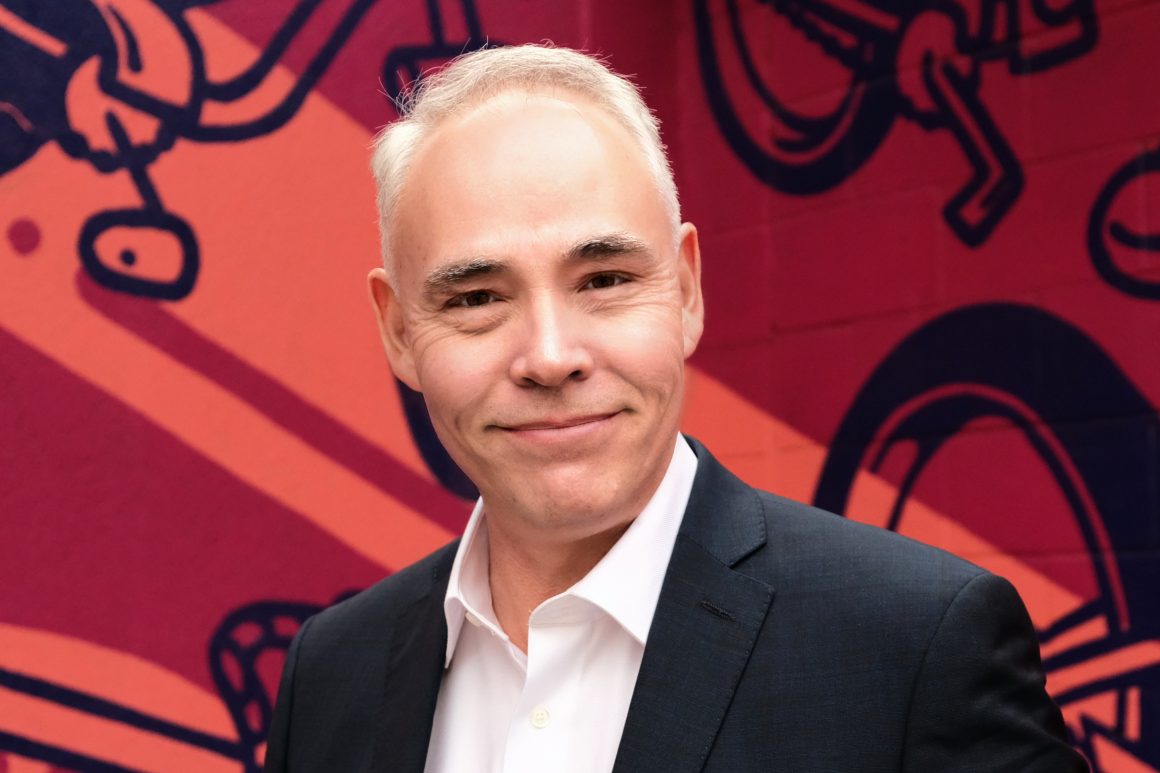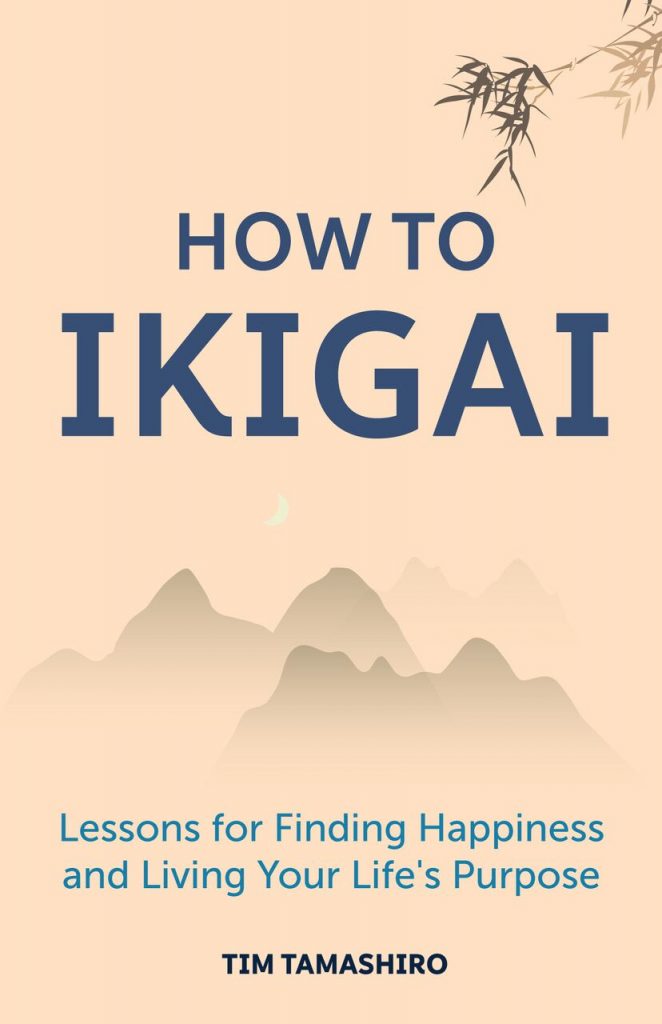
Tim Tamashiro aims to teach readers How to Ikigai
By Gurman Sahota, February 13 2019 —
Since departing from CBC Radio as host of Tonic, Tim Tamashiro has continued to experiment creatively, from building homes in the Dominican Republic to taking a trip across the Northwest Passage in an ice breaker. Most recently, he wrote a book on the Japanese philosophy of ikigai. The Gauntlet spoke with Tamashiro about his upcoming book, How to Ikigai, and how to best find your life’s worth.
The Gauntlet: How would you describe How to Ikigai?
Tim Tamashiro: Ikigai is a philosophy that comes from Okinawa, Japan, a sand-sized dot on the map of the world, where my grandparents were born. It means ‘your life’s worth,’
`In other words, appreciate your gifts, live as fully as you can and to experience and appreciate your life’s purpose.
G: ‘Do what you love,’ ‘do what you’re good at,’ ‘do what the world needs,’ and ‘do what you can be rewarded for’ — why are those the four directions of ikigai?
Tamashiro: Ikigai is a cycle. It’s about doing what you find enjoyable in your own life but also how it benefits the world and how you can create a cycle out of that. For example, my ikigai is to delight. By that I mean that I can enjoy conversations, sing a song onstage, host a radio show or have a conversation with somebody that I’ve just run into at the grocery store. Those are the things that I love to do. When I throw delight into the world, the world appreciates it and they say ‘thank you’ in return.
Sometimes you even get paid to be your ikigai. I’m a singer, and if I book a performance where I can do one of my shows, then theatres or ticket-buyers pay me. It’s really a matter of understanding the first two directions of ikigai first — do what you love and do what you’re good at — and eventually over time, you start to see how the world needs it and how you can feel rewarded for doing it.
G: The final direction, ‘Do what you can be rewarded for,’ comes across as almost self-serving. How does that work into one’s ikigai?
Tamashiro: It might come across as a bit self-serving, but ikigai is about your gifts, natural talents and what you can provide to the world. When the world says ‘thank you’ it just gives you more desire to say, ‘Oh, I want to do that again. I want to send more of me out into the world so they can benefit from it and say thank you,’ which is also a very nice bonus.
It’s part of the human condition too. We won’t do the things we’re not rewarded for on a regular basis. We still have to feel good about the things we put into the world. If you want to volunteer for the food bank and it doesn’t make you feel good, then you might not want to do that any longer. A lot of people do volunteer for the food bank and they enjoy it so they keep on going and doing that on a regular basis.

G: Did you grow up with the idea of ikigai or has it been something you found in your adult life?
Tamashiro: I didn’t know that ikigai existed but I had a hint. My grandparents were born in Okinawa, but even as a 20-year-old man, I was at the point where I said, ‘I want to do the kind of work that is fun and interesting and inspiring in my life.’ I couldn’t just settle and go in on a degree. I wanted to do something that was genuinely fun.
That’s why I chose music. I didn’t just choose music to be a performer but I chose music for all of the aspects that it could offer — so music business and musical performing obviously, but radio hosting and being a jazz singer. All these different jobs that I’ve had have all had that similar thread in music.
G: How has being from Blackfalds, Alberta helped with shaping your career?
Tamashiro: Being from a small town or being from anywhere doesn’t really matter. Ultimately it’s about your openness to try out new things. I never sought out a career as a radio host — that was one of those things that just showed up one day. I got a phone call from a producer in Regina saying, ‘Hey, have you ever thought about doing some radio?’ And I said, ‘No.’ And then it just kind of kept happening from CBC and so when I finally decided, ‘Let’s give it a shot,’ I found it was really enjoyable to be a storyteller.
The one thing I can credit to growing up in a small town is that it was a place that provided lots of great security but also gave me enough motivation to be able to move away from it and try bigger and better things. Maybe that’s not a proper way of saying it, [but to be] more adventurous or open-minded. Edmonton used to seem like a really big city and it feels like a small town to me now, same with Calgary.
G: If there’s one thing that you would like your readers to take away from the book, what would that be?
Tamashiro: I would love people to realize that their life is not meant to be based on success. It’s meant to be based on how much beauty you can see in it. We’re up against some pretty big obstacles when we get out of high school and into the world. Some of the first questions that high school students are ever asked about as soon as they graduate is, ‘So what are you going to do now?’ Like at 18-years-old, they’re supposed to have the answer. I’m 53-years-old, and I kind of have the answer but I want to keep on looking because it’s so much fun.
We tend to gravitate towards the best-paying jobs as opposed to the most rewarding jobs. I would hope that perhaps that the inkling, the notion of ikigai can be something that people can embrace and understand that life is supposed to be about what you’re good at, what you love to do, what you provide to the world and what rewards you can pull out of it as well, as opposed to the biggest paycheque, the biggest house and the perfect body. Those aren’t going to bring well-being but ikigai just might.
G: Now that the book is out, what’s next for you?
Tamashiro: The writing of a book is very much like a garden. There’s the planting and the watering and we’re in the harvesting part of it now. I want to get the whole idea of ikigai out there through interviews, speeches, travelling the earth and telling people the gospel of ikigai. I’m going to keep on delighting, keep on singing, I’m going to do speeches and knock on doors and say, ‘Hey, can I talk to you about ikigai?’ Hopefully, this idea can catch on.
This interview has been edited for clarity and brevity.
